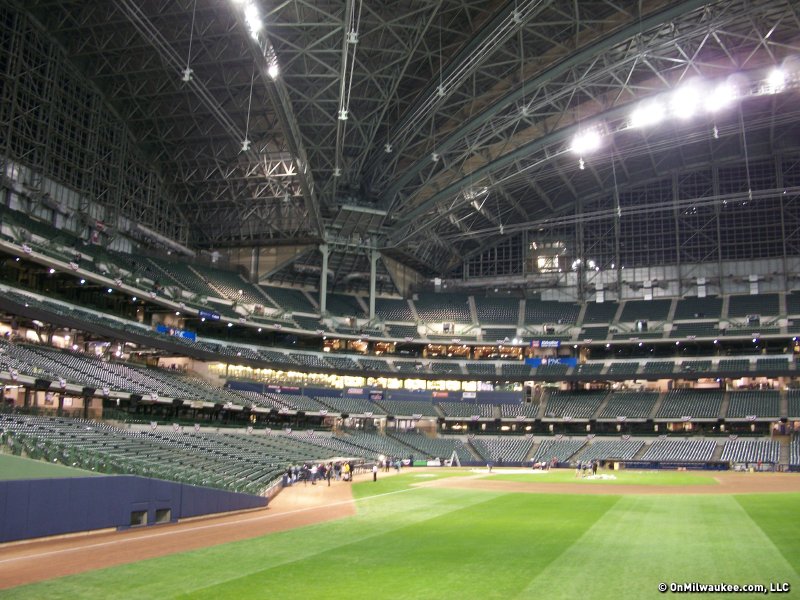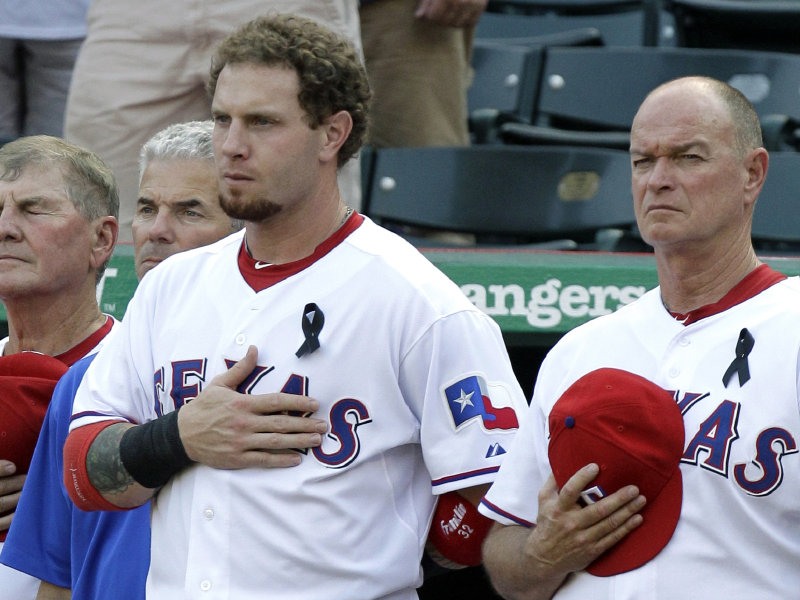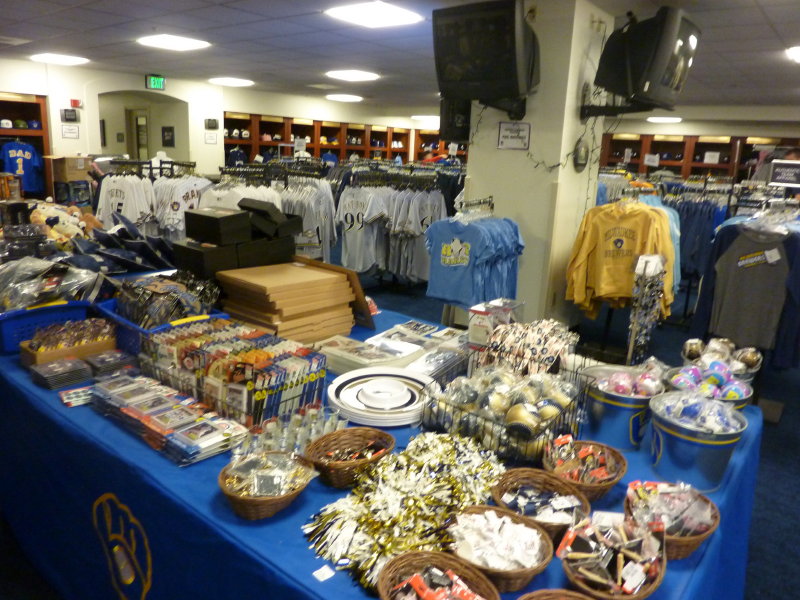I needed a couple of days to let it sink in.
Sometimes, in the immediate aftermath of the end of a long journey we have to be careful to not react without reflection. After witnessing the end of the Brewers season – a season that began way back in February on the west side of Phoenix – I am both grateful for the ride, but wistful at the missed opportunity to go further.
Others' reactions swing all the way from the Brewers should have been lucky to just get there, to fire everybody from Doug Melvin on down for embarrassing the city of Milwaukee on a national stage.
Both reactions demonstrate why they are on the extreme ends of the bell curve. Because they are both unreasonable.
After the Brewers acquired pitchers Zack Greinke and Shaun Marcum, there were several national publications touting the Brewers as the favorites in an otherwise unspectacular division. After the Cardinals lost 2010 Cy Young Award runner-up Adam Wainwright for the season to Tommy John surgery, the Brewers chances looked even better.
On the eve of Opening Day, Melvin traded low-level prospect Cutter Dykstra to Washington for reserve outfielder Nyjer Morgan, unknowingly setting off a chain reaction of events that eventually would lead to a furry blue character from a children's movie throwing out the first pitch of a playoff game; a spot generally reserved for dignitaries such as Hall of Famers or heads of state.
At the All Star break, Melvin solidified the bullpen by trading for Francisco Rodriguez. A couple of weeks later, he landed veteran utility man Jerry Hairston, Jr. All three of those moves proved to be strokes of genius, as the Brewers lead over the Cardinals swelled to as many as 10½ games on Sept. 5.
Then St. Louis got hot.
Unfortunately for the Brewers, the Cardinals never cooled off. Time will tell if that continues through the World Series.
What is painful about this year's Fall Classic is that even with as hot as the Cardinals are, it still could have (should have?) been our Brewers playing for baseball's ultimate prize.
What destroyed this team's chance was less of what St. Louis did, and more of what Milwaukee didn't.
To be sure, the Cardinals maximized their opportunity and earned the pennant. But to say no one could have snatched it away from them is a misnomer. The Brewers could have. They just didn't.
After the Brewers nine-run Game 1 onslaught at Miller Park, we were sky-high as a sports community.
And then things began to erode.
Game 2 saw struggling Marcum get lit up like a pinball machine, continuing a horrific end to an otherwise superb initial campaign in Milwaukee.
For several months this season, Marcum was the Brewers best pitcher. Even as late as early September, Marcum's ERA was just a shade over three (3.11 ERA after Marcum's 7-inning, 1-hit shutout at Houston on Sept. 4). His bread-and-butter was getting ahead of hitters with pinpoint control and keeping them off-balance by changing speeds.
Unfortunately, it appears as though the heavy toll on Marcum's arm took a heavy toll on his effectiveness. For the first time in Marcum's career, he pitched more than 200 innings and appeared to have just run out of gas by the time he was mercifully yanked after just one inning on Sunday night. After that Sept. 4 start, Marcum's ERA was a startling 9.00, which includes a 14.90 ERA in the postseason.
Marcum's late-season woes are the lightning rod for most of the criticism, but his weren't the only failures by a longshot.
The Brewers defense was historically abysmal, committing a NLCS-record nine errors, six of them confined to the final two games. Corey Hart forgot how to go back to the wall and catch deep fly balls. Morgan's defense was so poor in Game 2 that he was replaced in Game 3 by Mark Kotsay, who committed a pair of gaffes that were only assuaged by the solo home run he hit.
Yovani Gallardo, who had been so spectacular in pitching the Brewers into the NLCS in the first place, gave up four runs in the first inning of Game 3 before he settled down.
After carrying the Brewers offensive load through the first two games vs. St. Louis, Braun and Fielder's bats went silent, combining to hit just .167 (5-for-30) the rest of the series.
So while the Cardinals get credit for seizing their opportunities, the Brewers gift-wrapped those chances and delivered them right to the front door of Tony La Russa. I doubt a thank-you card will be sent from Busch Stadium, but one should be.
Errors, silent bats from MVP candidates, abysmal defense and uncharacteristically poor starts to games all add up to a very frustrating series to look back upon. Of course, here in Milwaukee, that is what we have a tendency to do. After all, it's not like there is a lot of postseason history on which to draw from.
But can we really be angry?
Frustrated? Sure. Disappointed? Without a doubt. But angry?
Who are you angry at?
Marcum, the Brewers most consistent pitcher for five months of the season?
Braun, the Brewers best chance at winning the MVP Award for the first time in 22 years?
Fielder, the Brewers leading home run hitter four out of the last five years?
Ron Roenicke, who all of the players credit for keeping them focused and loose en route to a franchise-record 96 wins?
Hairston, who was plugged into a position he hadn't played in months and hit .391 in the series?
Weeks, who earned his first starting All Star Game nod back in July?
Betancourt, who hit 81 points higher in the NLCS than he did in the regular season?
Who could you possibly be angry at?
As maddening as the final whimper of the playoffs was, we all have to look at the season as a whole. Back on Opening Day, even the most pessimistic of Brewers fan would have taken with glee the ultimate outcome of coming to within two games of the World Series.
Given some separation from Sunday's final out, perhaps as the flakes of snow fly and we fully turn our immediate attention to the remarkable seasons the Packers and Badgers football teams are having, we will look back on the Brewers of 2011 and remember not the hopeless lows but rather the euphoric highs.
For the first time ever, three Brewers were voted in as starters in the All Star Game. Fielder was the first Brewer to ever be named the midsummer classic's MVP. John Axford became one of baseball's elite closers. For a one month stretch, the Brewers were baseball's hottest team by winning 25 of 30 games. We learned who Tony Plush is. We all did "Beast Mode."
There were two champagne-soaked celebrations at Miller Park. A playoff series was won by one castoff centerfielder hitting another one home and into the waiting arms of pure jubilation.
In the coming weeks, Braun may be named the National League's MVP; Melvin is a leading candidate for Executive of the Year. Roenicke will likely lose out to Arizona's Kirk Gibson for Manager of the Year, but his accomplishments this season made many forget the frustrating two year period under the Ken Macha dictatorship.
While the season ended with a thud, the entire year was a bang. The Brewers may not be moving on to the World Series, but the bar has been raised. Even without Prince Fielder next season, the rest of the team that won 96 games is back. Without Fielder's $15 million on the books, it is possible Melvin could address other needs; perhaps a shortstop, everyday centerfielder, or replacement first baseman.
Moreover, this season was a smashing success because for the span of at least the last six months we were all pulling in the same direction.
For a year that has seen the state's proudest moments on the field of play, our politicians in Madison have turned what should be a respected legislative body into an embarrassing mud wrestling pit. But no matter where you come down on the political spectrum, our baseball team united us.
Republicans and Democrats; conservatives and liberals: we all cheered our Brewers on. They gave us something to be united about regardless of political tendencies or socioeconomic differences. The Brewers success gave future fathers stories to pass down to their children and grandchildren.
Frustrating end notwithstanding, and for so many reasons, we can all consider this season an unqualified success. For that, the Brewers do not deserve our anger; they deserve our thanks. As we brace for winter's seemingly endless cold grip of death, we comfort ourselves secure in the knowledge that spring will renew life once again when pitchers and catchers report to Maryvale.
See you in February!
Doug Russell has been covering Milwaukee and Wisconsin sports for over 20 years on radio, television, magazines, and now at OnMilwaukee.com.
Over the course of his career, the Edward R. Murrow Award winner and Emmy nominee has covered the Packers in Super Bowls XXXI, XXXII and XLV, traveled to Pasadena with the Badgers for Rose Bowls, been to the Final Four with Marquette, and saw first-hand the entire Brewers playoff runs in 2008 and 2011. Doug has also covered The Masters, several PGA Championships, MLB All-Star Games, and Kentucky Derbys; the Davis Cup, the U.S. Open, and the Sugar Bowl, along with NCAA football and basketball conference championships, and for that matter just about anything else that involves a field (or court, or rink) of play.
Doug was a sports reporter and host at WTMJ-AM radio from 1996-2000, before taking his radio skills to national syndication at Sporting News Radio from 2000-2007. From 2007-2011, he hosted his own morning radio sports show back here in Milwaukee, before returning to the national scene at Yahoo! Sports Radio last July. Doug's written work has also been featured in The Sporting News, Milwaukee Magazine, Inside Wisconsin Sports, and Brewers GameDay.
Doug and his wife, Erika, split their time between their residences in Pewaukee and Houston, TX.







